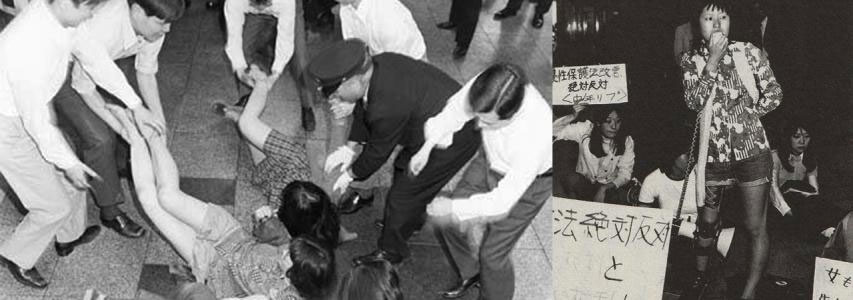
Ūman ribu, Disability Activism and Reproductive Justice in Japan (1970-1996)
- 15 April 2024
- 6.45pm
- The Swedenborg Society, 20-21 Bloomsbury Way (Hall entrance on Barter St), London WC1A 2TH
- https://www.japansociety.org.uk/event?event=654&eventcat=5
- +44 (0)20 3075 1996
- events@japansociety.org.uk
- Tweet
Sparked by the ūman ribu (women's liberation) movement and the debates surrounding the revision of the Eugenic Protection Law, the 1970s enabled the emergence of intersectional discursive spaces on reproduction in Japan within social activism. As disability activists and ūman ribu members came together, not always without conflict, ribu's critique of the proposed expansion of state intervention in women's bodies and the simultaneous devaluation of disabled lives transcended a liberal rights discourse and represented an intervention in Japan's biopolitical order. Following the dissolution of the ūman ribu movement in the mid-1970s, former members continued to carry on this legacy, most notably Tomoko Yonezu, who I argue brought these intersectional ideas into the field of disability activism and reproductive justice through organisations such as SOSHIREN and the DPI Josei shōgaisha nettowāku.
In this talk, I analyse the development of disabled women's activism for reproductive justice and bodily autonomy, primarily through the life and work of former ūman ribu activist Tomoko Yonezu and her encounters with the disability movement. I argue that the emergence of emancipatory spaces such as the student movement of the 1960s and ūman ribu in the 1970s were essential for marginalised groups and radical activists like Yonezu to engage with their own embodiment, a personal self-exploration that ultimately refined their social critique. Based on this understanding, the ūman ribu becomes more than a short-lived experiment in radical feminism in Japan. I argue that ribu thought, along with the emergence of disabled women’s voices, provided a platform for new forms of intersectional activist groups to challenge productivity as the dominant measure of human value in Japan well into the 1990s.
Dr Anna Vittinghoff is a social historian and Lecturer in East Asian Studies at the School of East Asian Studies, University of Sheffield, whose research focuses on the intersections of radical feminism and the disability movement in Japan from the 1970s to the present. Her other research interests include the Japanese student movement and the New Left, issues of social order and biopolitics in Japan, and the history of global 1968 and what happened to its protagonists.
Images: Right - Photo by Jiji Press Limited from a ūman ribu demonstration in 1973; Left - Tomoko Yonezu at a rally to stop the amendment of the Eugenic Protection Law (copyright by Michiko Matsumoto).
If you have any questions, please call The Japan Society office on 020 3075 1996 or email events@japansociety.org.uk.
Booking Details
Free- Booking essential
